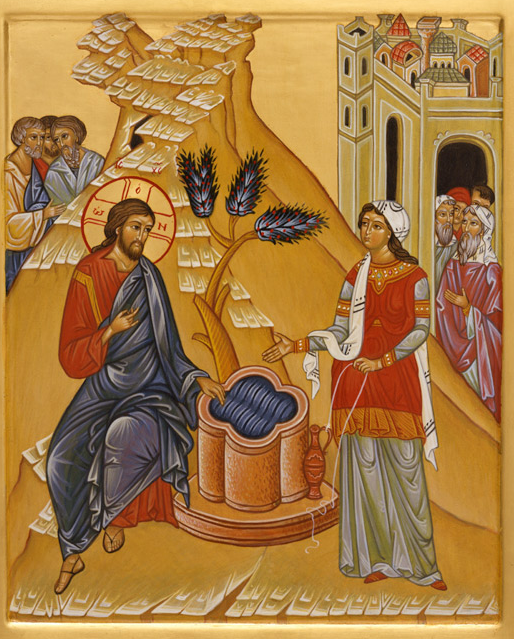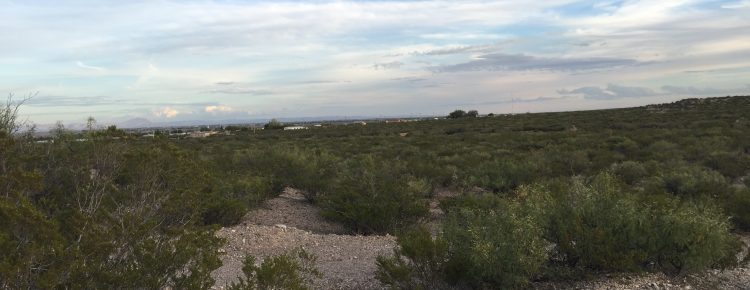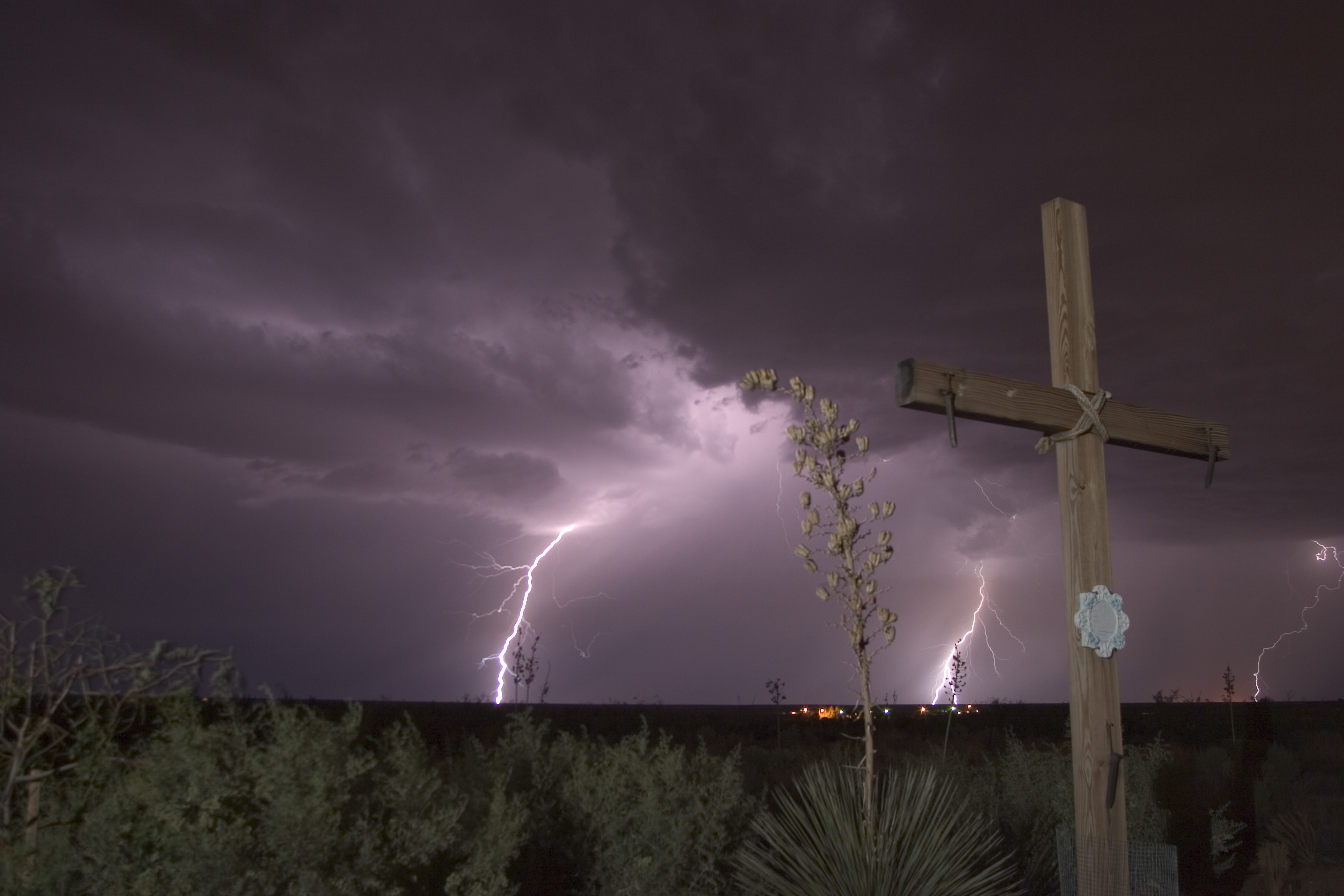Lent: Third Week
Gospel Reading: John 4:5-10
“Jesus came to a town of Samaria called Sychar, near the plot of land that Jacob had given to his son Joseph. Jacob’s well was there. Jesus, tired from his journey, sat down there at the well. It was about noon. A woman of Samaria came to draw water. Jesus said to her, ‘Give me a drink.’ His disciples had gone into the town to buy food. The Samaritan woman said to him, ‘How can you, a Jew, ask me, a Samaritan woman, for a drink?’ (For Jews use nothing in common with Samaritans). Jesus answered and said to her, ‘If you knew the gift of God and who is saying to you, ‘Give me a drink, ‘ you would have asked him and he would have given you living water.’”
Reflection:
In Every Heart, A Desert. In Every Desert, a Well
by David Morrison
“For every desert, there is a hidden well” -Bedouin saying
The depth of layered meaning that’s found in the encounter between Jesus and the Samaritan woman (in Christian tradition, her name is Photine, or “luminous one”) is manifold and provides for an insight that seems to perpetually unfold itself. The primary roots of the Gospel of John are generally regarded by scholars as being germinated in Jewish scripture and tradition. Jewish believers in the early church would have immediately recognized what the story was evoking: The “betrothal” passages in scripture: namely, when Jacob met his wife, Rachel (Genesis 9:1-13) and when Zipporah met her husband, Moses (Exodus 2:16-21). This metaphorically points to Jesus as the divine bridegroom and the woman as the bride representing the entire cosmos—and their meeting place is at a well in the middle of a scorching desert. It’s here where an eternal symbiotic relationship emerges. John’s gospel is very much focused on the divine nature (“Christology”) of Jesus. Yet, it goes out of its way to point out that at this well in the wilderness, he was tired and thirsty. He was comfortable in his dependence on this stranger to draw water and give him a drink. He then offers her spiritual, “living” water, and a meandering conversation ensues. It’s at the desert well where humanity fills the human need of the divine and the divine meets the eternal need of the human. It’s a synergistic relationship. Referencing Howard Thurman’s “inward sea,” there is a seemingly infinite desert in each of our souls. Hidden in this desert is a well flowing with the waters of infinity. It’s at this well where we meet the vulnerability of the divine and this “deep calls to the deep” of our own inward vulnerability. When the two needs meet, there we have the experience of the “love of God poured out in our hearts through the Holy Spirit” (Romans 5:5). This love is “living water” in that it is eternal. That is, it accesses us in the present moment where only a sense of being exists without words and concepts. It is opened to us from the past only through recollection (“Surely, God was here, and I knew it not!”), and it is retrieved in the future only through faith that it continually flows in the present moment (“No one steps into the same river twice..”). To bring the abstract more into a material understanding-we never possess or contain any final experience with God, or any last word on some insight or wisdom. Rather, the Spirit always pushes us toward the evolving horizon out of our preconceived and well established certitudes about life and others and into the land of what’s challenging and unfamiliar. In this narrative alone, we see Jesus pushing his disciples to travel through a forbidden land. They go with him, but refuse to eat the unclean food of the Samaritans, so they have to go off looking for provisions. By the end of the story, he makes them stay with the Samaritans for two days which means they ended up eating with their newfound prohibited friends. Through the dialogue with Photine, we see Jesus challenging and undermining her conventional, cultural, and religious arguments with the personal invitation to inhabit and embody her own life. So the invitation to partake in “living water” is the invitation to look to the widening frontier of our own lives. Howard Thurman wrote:
“All around us worlds are dying and new worlds are being born; all around us life is dying and life is being born. The fruit ripens on the tree, the roots are silently at work in the darkness of the earth against a time when there shall be new lives, fresh blossoms, green fruit. Such is the growing edge! It is the extra breath from the exhausted lung, the one more thing to try when all else has failed, the upward reach of life when weariness closes in upon all endeavor. This is the basis of hope in moments of despair, the incentive to carry on when times are out of joint and men have lost their reason, the source of confidence when worlds crash and dreams whiten into ash. The birth of a child — life’s most dramatic answer to death — this is the growing edge incarnate. Look well to the growing edge!”
Looking “well to the growing edge” is very challenging and can be terrifying. However, it’s the only way to keep the soul’s water from growing into a stagnant, muddy pool. We usually tend toward complacency because it appeals to our immediate demand for personal security and convenience. However, when we remain long enough in this condition of comfort, faith erodes into nostalgia for some imagined past; hope dissolves into candied optimism, and love devolves into religious sentimentality. Kindness gets plastered over our faces with the façade of niceness: and nice people aren’t kind—they’re toxic. Eventually, we find ourselves wandering in the soul’s desert once again toward the “growing edge.” The grace of God leads us to that old familiar well and our cooperative link with the divine becomes renewed, and the living waters flow through our lives again.
Prayer:
Exiled from my own life, I come to well once again. Thank you for your patience in our conversation on topics I think matter. Thank you for being compassionate toward me as my interior masks fall away. I offer you the cup from my life. Thank you for the living water flowing from your sacred heart. Amen.

Icon of Jesus and St. Photine



